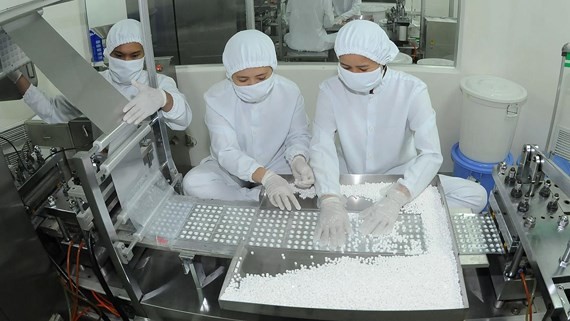
Relating to this matter, Mrs. Ly Kim Chi, chairwoman of the Food and Foodstuffs Association of Ho Chi Minh City, said that, since the beginning of this year, the processing and manufacturing industry has continued to be the main contributor to the economy with a growth of 11.18 percent. This industry has been attracting foreign investors in connecting with the market. In terms of market, Vietnam remains a potential market.
In the second quarter of this year, 45.2 percent of processing and manufacturing enterprises said that their business results were better than last quarter; 16.5 percent said that they faced difficulties; and 38.3 percent said that their business and production was stable. Forecasting about business results in third quarter, 52 percent said that the situation will be better; 11.4 percent held the opposite opinion; and 36.6 percent expected that the situation will be stable. This is also the reason that several foreign investors have invested massively in this sector recently.
Agreeing with this opinion, Korea Chamber of Business in Vietnam said that processed food consumption tendency in Vietnam is changing. Consumers prioritize clean and safe products as unsafe food and food containing anti-biotic residues have been causing poisoning and danger to consumers’ health.
Therefore, in order to catch up with the above trend, Korean enterprises will concentrate investment in producing products that meet organic and GlobalGap standards. Korea is the largest investor in Vietnam at the present. As for local enterprises, Mrs. Chi said that around 20 percent of food and foodstuffs processing firms have shifted to produce organic products.
As for medical device and pharmaceutical manufacturing market, according to economic experts, Vietnam has market scale of US$9 billion per year and growth rate at an average of 14 percent per annum. However, this field is rather new in Vietnam so the possibility that Vietnamese firms will participate in it is low. This has created large market space for firms, especially for foreign firms which invest in Vietnam.
On the contrary, strong investment attraction also causes competition pressure on domestic firms. As a result, in order to survive, it is essential for domestic firms to improve production quality and product packing. On the other hand, authorities should tighten control on plant protection drugs and antibiotic residues in food, farming and aquaculture so as to reduce risk for export products.
As for export market, Vietnam has signed several trade agreements with countries in the world, especially, Vietnam and the EU have recently finished signing a free trade agreement after nine years of negotiations, which has opened a large export market for Vietnamese products, especially for processed agro-aquatic and food products. However, domestic firms should actively upgrade technology, create high quality products, develop brand names and increase credibility for Vietnamese products in global market.
As for medical equipment and pharmaceutical manufacturing, Mr. Hua Phu Doan, vice chairman of the Medical Device Association of Ho Chi Minh City, emphasized that there are around 300 firms operating in medical device manufacturing but their products are at low level with low added value and have not met domestic demand for medical devices.
Therefore, authorities should have policies to complete supply chain to support the industry as well as policies for financial aid and preferential tax policies. In long term, if there are conditions prompting public hospitals to use Vietnamese-made medical equipment, domestic medical device manufacturers will have opportunities to increase their capitals and invest in high-tech production lines.
























